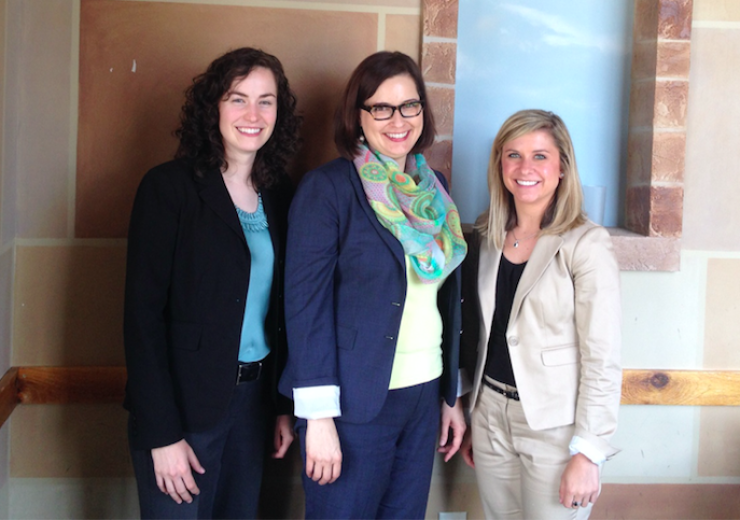Wealth management has been plagued by a longstanding problem: the dearth of on-the-job work and training opportunities for aspiring independent planners straight out of college or certificate programs. Might medicine have the prescription?
Several RIAs have taken a cue from doctors in recent years, running in-house residency programs to train the next generation of planners. Although they don't come with the kind of much-maligned sleep deprivation medical residents famously endure, the planning residencies can last as long, about three years. That's generally enough time to meet the work experience requirement to gain a CFP certification.

"It's very important for undergraduates and for job changers," says Kacy Gott, who helped Aspiriant launch a residency program in 2013 and is in the process of helping the firm where he now works, Meritas Wealth Management, start its first this summer. "And it helps with the problem of having too many senior people doing lower level work."
Without widespread training programs of their own, RIAs can end up hiring young advisors out of banks, wirehouses and insurance companies, thanks to the latter’s longstanding and well-funded training programs. That’s a problem for RIAs, with far fewer resources at their disposal, who may end up retraining new hires to operate in an environment more focused on holistic planning and less on sales.
Aspiriant, which manages $12 billion for clients out of two offices in Los Angeles and San Francisco, shut down its program in 2016 after hiring all four of its residents; it now says it plan to launch a new one. Meritas, based north of San Francisco in Larkspur, California, has $280 million in AUM and aims to launch its inaugural program in June, Gott says.
Yeske Buie, which manages more than $700 million for clients out of offices in San Francisco and Vienna, Virginia, has run a residency program since 2014. Cornerstone Wealth Advisors, with $250 million in AUM in Edina, Minnesota, hired its first resident in 2010.
"It's a win-win," Cornerstone partner Andrea Eaton says of her firm's program.
From the planners' perspective, she says, "How do you get that experience if no one will hire you? From the firm's perspective, it increases your capacity to serve."
However, the programs come with challenges. Some residents won't prove mature or strong enough to complete them. And firms have to resist converting all their successful residents to permanent hires, which can turn the program into a recruiting mechanism and defeat the purpose of seeding the profession with fresh talent.
The latter often occurs when firms find that, after spending three years "raising" a resident, they can't bear to part with them.
That's risky, Gott says.
If you hire residents, especially the first ones you bring on, you create the impression that any subsequent residents "flunked" the programs because they weren't good enough to retain, he explains.
That's why Meritas plans to make it clear to its first resident that the program won't come with an internal job offer three years down the road, he says.
Aspiriant ran headlong into this sticky wicket when it decided to hire its residents, says Brett Gookin, an Aspiriant partner who took over management of the program after Gott left.
After bringing all four graduates on board, the firm shuttered the three-year-old program, with the intention of relaunching. It plans to do so after Aspiriant has hired enough younger full-time partners that it's easier to say goodbye to departing residents. At least that’s the hope.
"What was the phrase, 'You can't keep the puppy?' " Gookin says. "That's how we talked about the associates. But I can't do that. I want to keep the puppy. I can't adopt them out. That's my own mental struggle."
It's been tough enough, Gookin says, that he'll probably let somebody else run the program next time around.
Yeske Buie and Cornerstone both also recently succumbed to the temptation to hire. Yeske Buie converted two of its former residents to full-time and Cornerstone brought on one.
Two other Cornerstone graduates, Christine Damico and Amanda Ansell, have "graduated" to positions at another firm, OLIO Financial Planning, in McLean, Virginia.
Cornerstone hired just one, Sara Kantor. It would have hired more, but the firm only had the capacity to bring on a single new hire and probably won’t hire another for several years, according to Eaton.
Another two of the total five residents who began Cornerstone's program since its inception dropped out, she says, which is not surprising.
"We expect a lot from our residents," Eaton says. "It's a rigorous program. Some people just don't cut it."
A residency program becomes most useful once it's got first-, second- and third-year residents working at the same time, which enables the more experienced residents to train the ones coming up behind them, planners at all four firms say.
"It ends up being a geometric progression that has no end in sight," says Dave Yeske, cofounder of Yeske Buie.
Once more programs take root at RIAs around the country, firms won’t feel as much pressure to hire their own graduates, Gott predicts, because they'll be able to hire planners from firms with similar cultures — creating a talent ecosystem firms can tap into as necessary.
One day, Gott speculates, Aspiriant might want to hire a resident-graduate from Meritas.
"Plus," he adds, "our dream is then to hire a former resident associate from Yeske Buie and add a new flavor for how we do things here. If we start hiring different resident associates from different places, it will be better for all of us."





